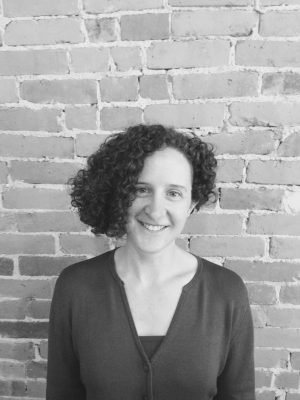
UConn’s Humility and Conviction in Public Life project announces $2 million in fellowship grants for projects that will delve into newsrooms, classrooms and the halls of Congress

UConn’s Humility and Conviction in Public Life project announces $2 million in fellowship grants for projects that will delve into newsrooms, classrooms and the halls of Congress
Nancy Fraser, The New School
Abstract: Exploitation-centered conceptions of capitalism cannot explain its persistent entanglement with racial oppression. In their place, I suggest an expanded conception that also encompasses an ongoing but disavowed moment of expropriation; in so doing, I disclose (1) the crucial role played in capital accumulation by unfree, dependent labor and (2) the equally indispensable role of politically enforced status distinctions between free, exploitable citizen-workers and dependent, expropriable subjects. Treating such political distinctions as constitutive of capitalist society and as correlated with the “color line,” I demonstrate that the racialized subjection of those whom capital expropriates is a condition of possibility for the freedom of those whom it exploits.
Nancy Fraser is Henry A. and Louise Loeb Professor at the New School for Social Research and is Vice-President and President-Elect of the American Philosophical Association, Eastern Division. She is also Professor II at the Centre for Gender Research at the University of Oslo and holds the Chair in «Global Justice» at the Collège d’études mondiales, Paris. Her most recent books are Domination et anticipation: pour un renouveau de la critique, with Luc Boltanski (2014); Transnationalizing the Public Sphere: Nancy Fraser debates her Critics (2014); and Fortunes of Feminism: From State-Managed Capitalism to Neoliberal Crisis (2013).
Sponsored by the Political Theory Workshop, Women’s Gender and Sexuality Studies, Asian/Asian American Studies, Political Science, Philosophy, Sociology, and the University of Connecticut Humanities Institute.
“Donald Trump’s inauguration heralds a new age of arrogance and says something sad and scary.” Read the full article here at the New York Times.
November 28, 2016
“Only a few days after the presidential election, the Oxford English Dictionary crowned its international word of the year: post-truth. The dictionary defined it as “relating to or denoting circumstances in which objective facts are less influential in shaping public opinion than appeals to emotion and personal belief.” To say that the term captured the zeitgeist of 2016 is a lexigraphical understatement. The word, the dictionary’s editors explained, had “gone from being a peripheral term to being a mainstay in political commentary.” ”
Read the full article here.
Although not stated using the particular phrase, something like intellectual humility in public discourse appears to be one of the foundational aspects of deliberative theory. For example, Rawls’s concept of the fact of reasonable pluralism, Habermas’s theory of testing validity claims, and even Fishkin’s call for a more reflective public opinion all rely upon the basic assumption that citizens accept that they and those like them might not be correct in their beliefs or preferences. Citizens must, at least eventually, be open to the possible influence of others with whom they disagree; without this possibility, it would be hard to call the democracy deliberative. This workshop will bring together leading scholars and promising new researchers from philosophy, political theory, and political science to discuss topics at the intersection of intellectual humility, public reason, and deliberation. Topics include the place and nature of intellectual humility in public discourse, the possible determinants that mitigate against or encourage its presence (e.g. open‑mindedness, tolerance, and empathy); and the ways in which intellectual humility arises in actual public discourses and practices of deliberation.
Information about speakers and talk abstracts can be found here.
The full schedule of activities can be found here.
Register for the event here.
Date: 10/25.
Time: 4:00 – 5:30 pm.
Location: Babbidge Library 4th floor room 4/209 meeting.
We often think of Social Movements as ideal enterprises; activities undertaken by passionate idealists who eschew the corruption of the status quo for the purity of an imagined better world. While the passion and idealism of social movement participants is certainly real, I argue that if we look at movements through the theoretical lens of American pragmatism, we find that they are an utterly practical, functionally necessary, and immanently effective apart of democratic politics. Taking the contemporary example of the Movement for Black Lives, we will explore the pragmatic imagination, organization, articulation, and political participation of this country’s ascendant 21st century movement.
The Public Discourse Project seminar series upcoming speakers
The Injustice League lecture series brings together philosophers and political theorists working on issues of injustice. We focus on inviting junior faculty who aren’t typically given this kind of forum.
 Amy Shuster (Visiting Assistant Professor of Philosophy The Ohio State University)
Amy Shuster (Visiting Assistant Professor of Philosophy The Ohio State University)
Date: 10/14
“The finest rule of life we have” on the value of ambiguity for democratic praxis
Danielle Allen’s Our Declaration (2015) revitalized interest in the U.S. Declaration of Independence among those committed to equality as a foundational American ideal—especially feminists, anti-racists, and anti-colonialists. But the meaning of the document has a checkered history in the United States and abroad. While some—like David Walker, Justice Taney, and Malcolm X—point to the civil and political subordination of women, slaves, freed persons, the poor, American-Indians, and the indigenous people in other parts of the world at the founding (and in various forms to this day) as reason to think that the document is merely political cover for domination, others—like Abraham Lincoln, Anita Whitney, Martin Luther King, Jr., and Ho Chi Minh—have found in it a promise of equality for future generations, regardless of nationality. What are the principles of interpretation that lie behind such a diverse set of readings, especially of the document’s distinctive phrases like “all men are created equal”? Are all of them equally defensible upon reflection? I aim to weaken both the starry-eyed disposition to find too much in the Declaration and the hard-nosed determination to find too little. In the end, I vindicate its meaning for democrats who are committed to a principle of equal inclusion in an on-going political community characterized by a variety of differences among its members.